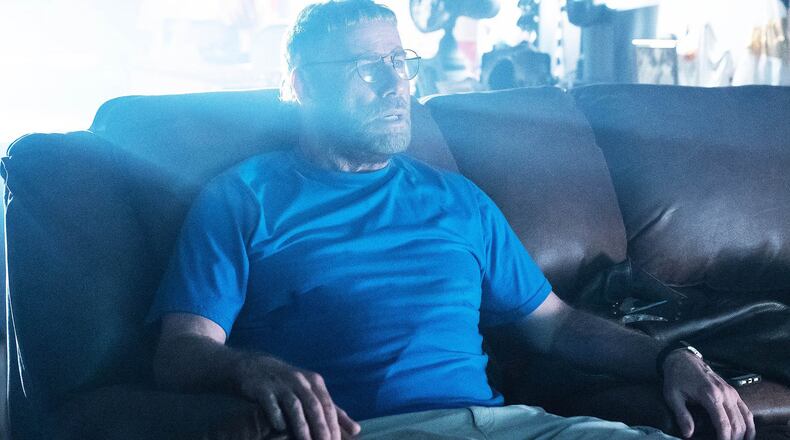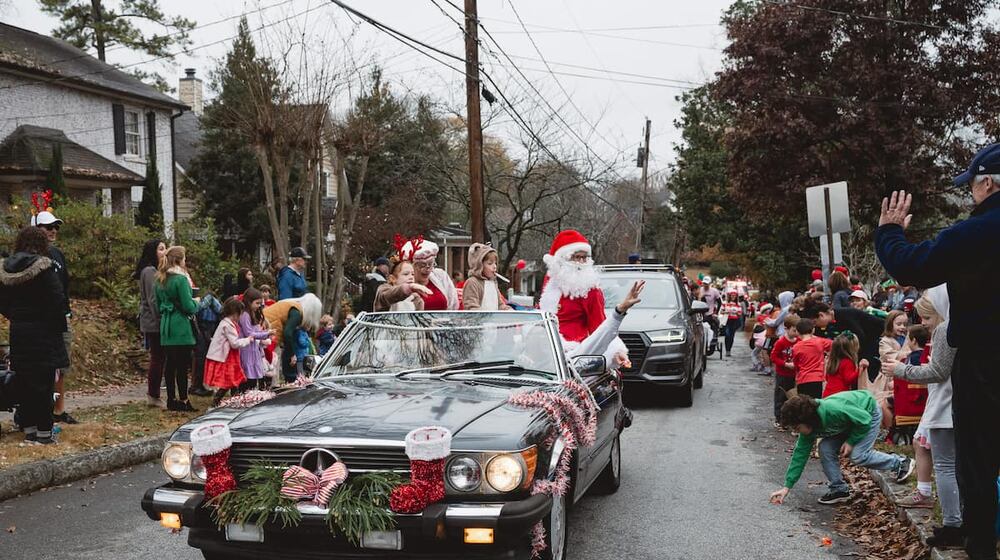John Travolta has spent some 45 years in the celebrity spotlight, which might make him the logical choice to portray a popular movie star threatened by an obsessed stalker in the thriller “The Fanatic” (opening Friday). Instead, director and co-writer Fred Durst, best known as lead singer of the rap rock band Limp Bizkit, casts Travolta as Moose, the disturbed fan of a Hollywood action hero (played by Devon Sawa).
During a promotional visit to Atlanta earlier this month—sporting a nicely groomed beard and a newly shaved bald head (for his recent appearance in a Pitbull music video)— Travolta, 65, admits he can relate to both of the characters in his latest film. “I’ve had a few encounters with obsessed fans over the years, although they weren’t nearly as ill-intended as what happens in ‘The Fanatic,’” he says.
“But I can understand fans, because I’ve loved being one myself, and I’ve been fortunate enough to meet a lot of the people I was crazy about,” the actor continues, citing everyone from James Cagney and Marlon Brando to Paul Newman and Barbra Streisand. “That kind of obsession has never bothered me because I’ve also had those feelings myself.”
The character of Moose isn’t your typically deranged villain. If anything, the role of the movie star might be even more unsympathetic and less likable than the fan who’s stalking him.
Exactly. This fictional actor in our story is a good person, but he’s a bad celebrity. There’s an art to being a celebrity, and this guy hasn’t mastered it. It’s that simple. I felt it was important to play Moose as sort of a man-child, someone who’s on the autism spectrum to some degree because I think that helps justify where he’s coming from and explains some of his actions—not all of them, perhaps, but definitely some of them. It allows the audience to understand and believe in his obsession, and how far he’ll go in pursuit of it. He’s like a child, so when his favorite person in the whole world is cruel to him, he’s deeply hurt and confused by that rejection.
Talk a little about working on a lower-budgeted movie like “The Fanatic,” which was made and financed outside of the usual Hollywood system.
This is where I happen to be at in my career right now. The fun part about not doing big studio pictures is that it gives me a lot more freedom to pretty much do whatever projects I want to. It doesn’t matter quite so much whether it’s something that’s going to be commercial or not. We didn’t have a lot of studio executives telling us we couldn’t do this or that.
When you look back over your long and varied career, which of your more mainstream films stand out or mean the most to you?
Luckily, there’ve been a lot of them. I think “Urban Cowboy” was special because it was a real change of pace for me, after “Saturday Night Fever” and “Grease” and mainly being considered a teen heartthrob or whatever. “Blow Out” wasn’t as much of a commercial hit, but it was a big acting challenge for me at the time and especially rewarding because of that. And, of course, “Pulp Fiction” absolutely revived and resuscitated my career.
You’ve had a lot of professional ups and downs through the years. The longer you’re at this, do those become easier to navigate or deal with?
I suppose that’s the price you pay when you’ve always wanted to be more of a character actor than a traditional leading-man type. And I’m not complaining, either. Those ups and downs can be wonderful. I’d rather have them, and be able to explore any kind of character I find interesting than to live on a steady diet of something that bores the crap out of me, and possibly bores the crap out of everyone else, too. That’s why you’ll see me playing Bill Clinton in “Primary Colors,” or a wife and mother in “Hairspray,” you know? Sometimes, you play characters that come with a tremendous amount of risk, but that’s the exciting part. When you stop monitoring whether they’ll succeed or fail, whether or not those movies will make money at the box office, that’s the real adventure for me.






